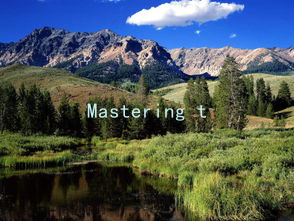Desire and Deception: Philosophical Dilemmas in the Game of Love
Desire and Deception: Philosophical Dilemmas in the Game of Love
In the intricate dance of romance, desire and deception play pivotal roles, often intertwining in ways that challenge our understanding of love and relationships. As we navigate through the complexities of human emotions, philosophical dilemmas emerge—questions about authenticity, intention, and the very nature of attraction come to the forefront. At the heart of these dilemmas lies the duality of desire and deception, raising issues about what we seek in love and what we are willing to sacrifice to attain it.
Desire is often the initial spark that ignites the flame of attraction. It is a powerful force that drives individuals to seek companionship, intimacy, and connection. Yet, desire is inherently subjective and multifaceted. For some, it may stem from physical attraction, while for others, it may arise from emotional compatibility or intellectual stimulation. The existential question emerges: to what extent do we seek genuine connection, and to what extent do we create illusions to fulfill our desires?
In the pursuit of love, deception can become a seductive companion. Individuals may embellish their qualities, hide their flaws, or adopt personas that resonate more with their desired partner. The question arises—does deception in love tarnish the purity of our desires, or is it an inevitable aspect of human relationships? Philosophically, this leads to a conundrum. When we present a curated version of ourselves, are we merely trying to attract love, or are we fundamentally distorting the nature of love itself?

The game of love often requires us to negotiate these dilemmas daily. The line between self-enhancement and deceit blurs, emphasizing the importance of intentionality. It may be tempting to construct an idealized self to attract a partner, but this act may lead to a precarious foundation for a relationship built on sand. Honesty and vulnerability, though daunting, are essential ingredients for nurturing a lasting connection. Can love truly flourish in an environment where deceit is prevalent, even if it is masked as a means of desire?
Moreover, the implications of desire and deception extend to the realm of consent and agency. When we engage in the game of love, it is crucial to consider the impact of our choices on our partner. The ethics of deception become particularly salient when considering how our actions affect the narratives we weave in others lives. Is it fair to lead someone on under the guise of affection? The calculus of emotional responsibility raises further philosophical inquiries regarding the ethics of attraction.
Ultimately, love exists in a paradoxical space where desire and deception coexist. While desire fuels romantic pursuits, the presence of deception can cloud our judgment and obscure the truth. Striking a balance between authenticity and aspiration is key in navigating the landscape of relationships. It demands introspection, an understanding of our motivations, and an acknowledgment of how our desires shape our interactions.
In conclusion, the philosophical dilemmas of desire and deception in love call us to reflect on what we seek and how we achieve it. As we engage in the game of love, we must ponder the foundational qualities that support genuine connections. By embracing honesty and vulnerability, we move toward a deeper understanding of ourselves and our partners, transcending the superficiality of mere attraction. Love, at its best, is an intricate tapestry woven from threads of desire, honesty, and mutual respect, a commitment to pursue authentic connections even amid the allure of deception.





